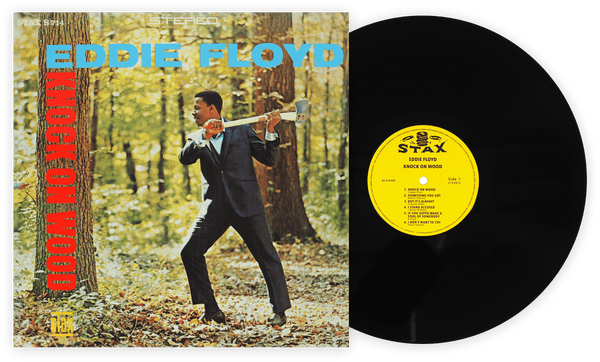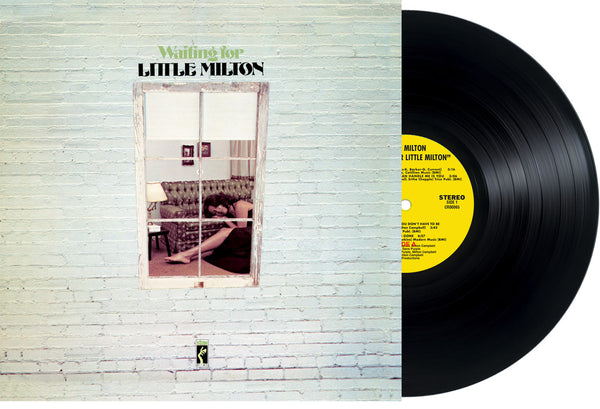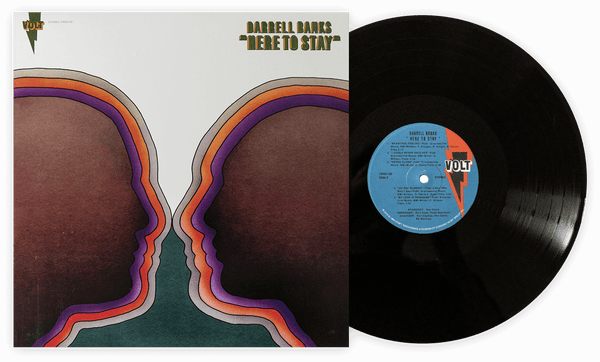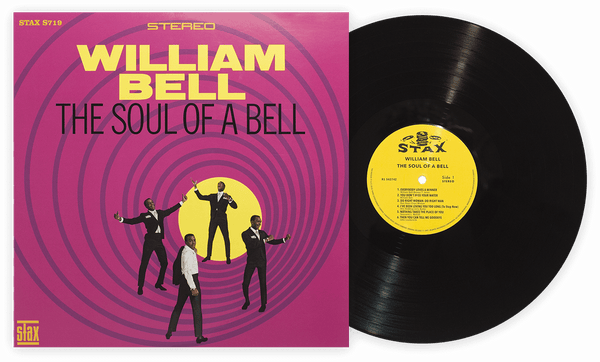To help people who bought VMP Anthology: The Story Of Stax Records dive deep into the catalogs of the artists featured in our box set, we’ve created primers for every artist featured.
Stop reading and watch this scorching live version of "Green Onions." In four-and-a-half minutes, Booker T. & the M.G.’s, the iconic Memphis soul combo, transfix a reverent audience during a Norway stop on the 1967 Stax/Volt Revue tour.
The woman’s stunned face at the 1:35 mark says it all. And the performance warrants that kind of mesmerized reaction: Bandleader Booker T. Jones embellishes his signature organ riff with rapid-fire blasts that sound like a short-circuiting dial-up modem; drummer Al Jackson Jr. weaves frenetic fills into his suave, in-the-pocket ride cymbal groove; and Steve Cropper's wailing leads and bluesy double-note bends soar above the rock-steady rhythmic anchor of bassist Donald "Duck" Dunn (who also redefines the term "bass-face" with herky-jerky contortions around the 2:10 mark). Here, as always, each musician is perfectly in-sync — an essential balance.
And "balance" is a crucial theme of the M.G.’s story. As house band for Stax Records in the 1960s, the instrumental quartet always served the song, never the soloist — stretching out when the mood struck, but never at the expense of melody or groove. And as a multi-racial band in an era of rampant racism and inequality — having formed before the Civil Rights Act, Voting Rights Act and Fair Housing Act — their teamwork resonated on a deeper social level.
That game-changing partnership essentially happened by accident. "Green Onions," their debut single from 1962, originated from an entirely different Stax studio session, as the group jammed on Jones' organ progression during breaks. They wound up with a crossover hit, landing on Billboard's pop and R&B charts — and leading to a full LP of the same name.
The initial line-up (Jones, Cropper, Jackson Jr., and bassist Lewie Steinberg) stayed intact through 1965, when Dunn took over bass duties. And while they never sparked another riff quite as savory as "Green Onions," they developed into a tighter, more adventurous band as the decade wound on — adding mainstream rock and funk elements to their effortless Southern soul approach. (That is, when they weren't backing up Stax greats like Wilson Pickett, Bill Withers, Otis Redding and Albert King.)
For an M.G.'s appetizer beyond "Green Onions," let's explore five of the band's essential albums.
Green Onions (1962)
The M.G.'s wisely open their debut LP with a knock-out punch — once you get that greasy blues groove of "Green Onions" in your bones, you'll follow these guys anywhere. But it's a tough act to follow. None of the other 11 tracks match the brilliance of that opener, and the filler reprise of "Mo' Onions" makes the record feel slightly thrown-together. Still, the band's telepathic interplay is staggering throughout, particularly on their version of Dave "Baby" Cortez's 1962 hit "Rinky Dink," with Jones' carnival organ whirl ricocheting off Cropper's staccato shards.
And Now! (1966)
The M.G.'s hit their stride on the third album, their first with Dunn in the lineup. His melodic style automatically deepens the groove, including jazzy walking basslines on the traditional "Jericho" and ripping original "Soul Jam." They even flirt with funk on versions of Allen Toussaint's "Working in the Coal Mine" and the T-Bones' "No Matter What Shape (Your Stomach's In)." They'd yet to truly showcase their writing talents, but it's telling that divine piano workout "My Sweet Potato," a self-penned track, rivals "Green Onions" in a food-themed showdown.
Hip Hug-Her (1967)
The four-piece started taking more ownership of their material in the late 1960s, starting with Hip Hug-Her. Their fifth album, featuring six original cuts, is sonically heavier and more eclectic than their previous work: "Soul Sanction" weaves in a funky cowbell groove, with Cropper adding a smoky, "Ticket to Ride"-style guitar riff on the breakdown; with its jangling 12-string riff and wistful melodies, the fittingly titled "Carnaby St." sounds like it could have been lifted from a Byrds LP of the same era. A purely sonic rush arrives on "Pigmy," with Jones' mammoth Hammond thundering with the force of Deep Purple over a chic bossa-nova blues.
McLemore Avenue (1970)
"I thought it was incredibly courageous of the Beatles to drop their format and move out musically like they did [on 1969's Abbey Road]," Jones told A.V. Club in 2009. "To push the limit like that and reinvent themselves when they had no need to [do] that. They were the top band in the world, but they still reinvented themselves. The music was just incredible, so I felt I needed to pay tribute to it."
He and the M.G.'s did just that to launch the 1970s, reimagining the Fab Four's late-era masterpiece in a soul-rock instrumental format. It's not the radical artistic leap it might seem on paper: The Beatles were massive fans of the Stax roster (and even considered recording Revolver at the Memphis studio); Billy Preston's own blaring Hammond was already an essential part of Abbey Road; and Dunn's articulate bass work is a kindred spirit to Paul McCartney's own playing. But the M.G.'s leave their stamp on these sacrosanct tracks — from the churched-up organ tone on the atmospheric "Sun King" to Cropper's wicked soloing on the windows-down jam on "Polythene Pam."
Melting Pot (1971)
The M.G.'s carried on in various formations over the decades, with Jones and Cropper carrying the torch up through the present day. But Melting Pot, the final studio union of the four classic-era members, marked the end of their prime run. They went out on a legitimate high note, venturing into freer, funkier territory that feels almost entirely untethered to the lofty legend of their "Green Onion" days. "Chicken Pox" revels in deep-fried funk; the title-track unfolds an eight-minute groove orgy lit by Jackson Jr.'s colossal drum beats and Cropper's twangy licks; and "Sunny Monday," with its intricate guitar riffs, grandiose strings and classical-styled piano, recalls both Love and Procol Harum.
Related Articles
Join the Club!
Join Now, Starting at $44Exclusive 15% Off for Teachers, Students, Military members, Healthcare professionals & First Responders - Get Verified!








